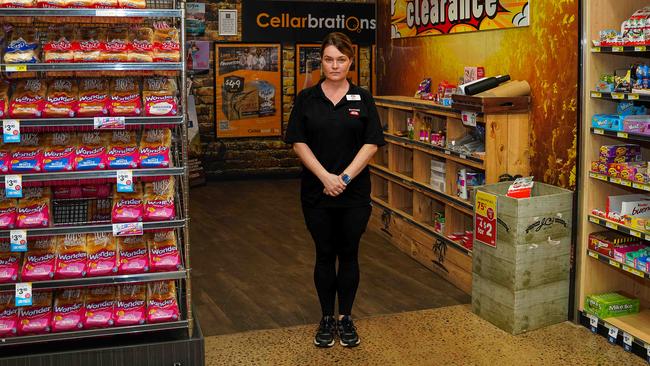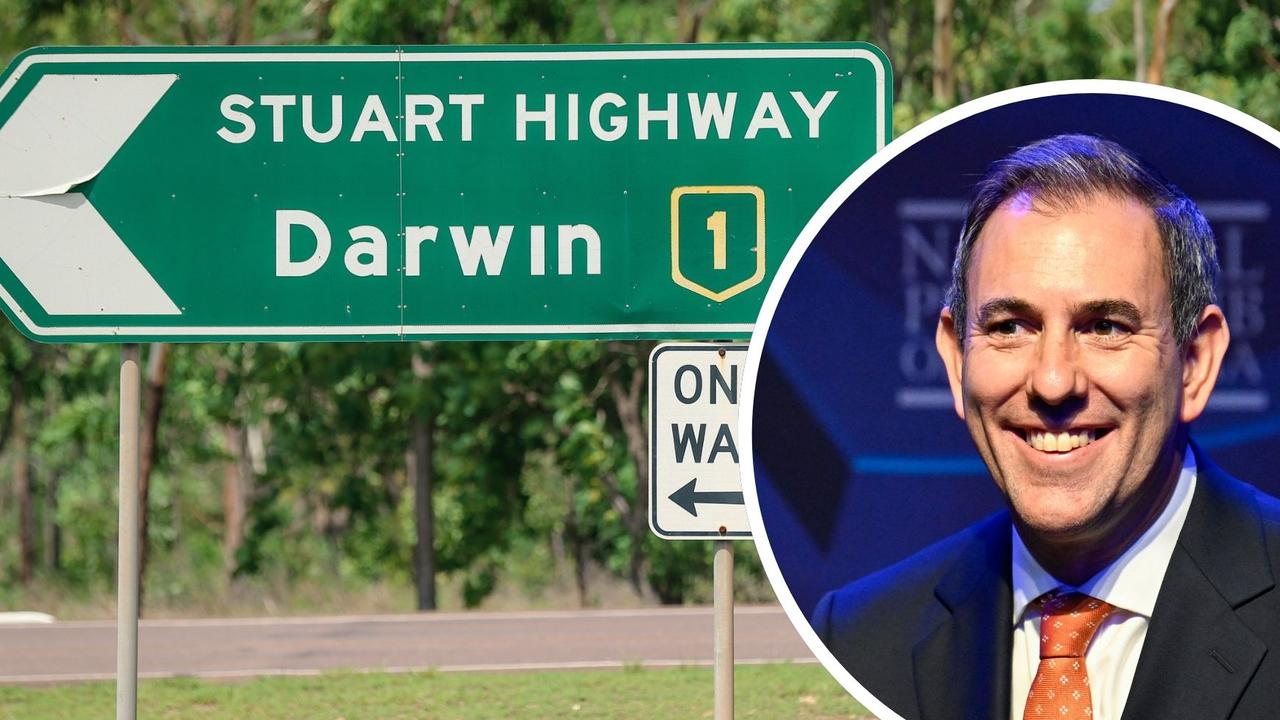25 per cent alcohol sales cap unfairly targets independent groceries: Darwin IGA
The government’s offer to buy back liquor licences is unlikely to capture the true value of local bottle shops, says a Darwin small business.

Northern Territory
Don't miss out on the headlines from Northern Territory. Followed categories will be added to My News.
A Darwin small business owner says she is not planning to take up the government’s offer to buy back liquor licences, arguing it would be difficult to compensate for convenience of booze and food being sold together.
Zuccoli IGA and Cellarbrations owner Shelly Lay said it was hard to put a dollar sum on grocery sales they would lose if the bottleshop was gone.
“People want to do it all under the one roof,” she said.
“The real value of a liquor licence is really how much business it brings in to the other sales.”
While her current IGA operations ran a profit, Ms Lay feared grocery sales would fall dramatically if the alcohol offering was removed.
“If you want to pick up some pasta ingredients and a bottle of wine, you’re not going to go to two different spots,” she said.
The union representing retail workers, Shop, Distributive and Allied Employees Assocition, has supported the choice being given to outlets.
SDA NT director Shlok Sharma said the announcement was a “good start” but that workers needed safer retail environments more than anything.
He said he was waiting to see details of the government’s safety audit of all late-night retail outlets.
“Standalone liquor sites are the most appropriate sites to serve liquor, so we can ensure there are specific security measures and training place,” he said.
“Workers in grocery stores where liquor is sold are particularly vulnerable.
“More must be done to ensure their long-term safety and eliminate these risks altogether.”

Liquor sales cap “unfair”, says small business
The liquor licence shake up comes as the Zuccoli Cellarbrations was this week forced to stop selling alcohol due to changed reporting requirements for the 25 per cent cap on liquor sales.
The bottleshop closed Monday, March 27, and would not be able to reopen until April 1 when the next quarter ticked over, with alcohol sales now measured every three months rather than annually.
Ms Lay said the change made an “unfair” law, which requires her to sell $150 of groceries for every $50 of booze, even harder to follow across the “peaks and troughs” of the year.

“We had a train derailment earlier this month and we didn’t have groceries delivered for three weeks, so grocery sales are down … and it’s not weighted the same, we’re talking about a $50 carton of beer to a $5 loaf of bread,” she said.
“Small businesses are going to go under, and that has a massive flow-on effect to our employees who are losing hours and will potentially lose their jobs,” she said.
Ms Lay said the policy pushed customers to bottle shops owned by supermarket giants.
“If alcohol’s not available here it’s available a couple of k’s up the road, so it’s really just pushing small business out.”
The alcohol sales cap was introduced in response to the Riley Review of the Territory’s alcohol policies.
The intention of the policy was to stop alcohol being sold alongside general groceries, sending a message it was not an everyday item and reducing availability.
The 2021-22 financial year was the first year the restriction was enforced, with Milner Road Foodtown the first to be fined by the Liquor Commission.
The Alice Springs store copped a $9734 penalty December 14 after liquor made up more than 40 per cent of its sales value.
Wanguri Supermarket was fined $3454 for 28.75 per cent alcohol sales, and Howard Springs Supermarket was fined $9420 for 33 per cent liquor sales.
Howard Springs Supermarket owner Davin Lay – of no relation to Ms Lay – said he did not support the alcohol sales cap.
“We’re not able to trade on a level playing field,” he said.
“I can see the bigger picture of the policy, but it doesn’t apply to Coles and Woolies in the same way.”
Mr Lay would like to see the cap increased, or annual reporting returned.
“With quarterly reporting you’re always watching your back,” he said.




